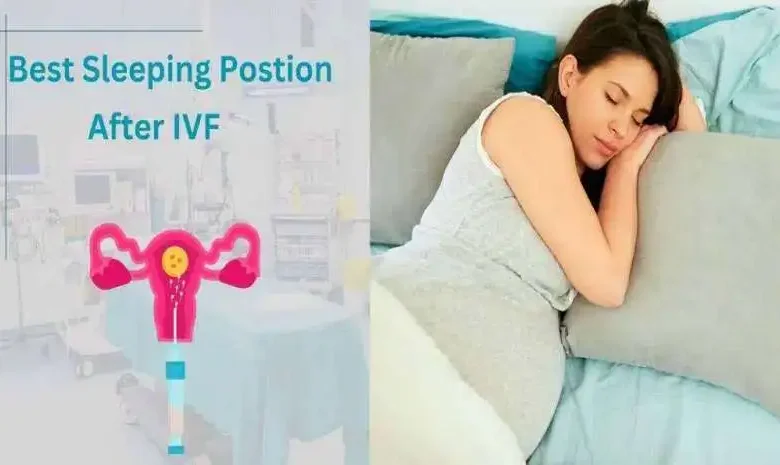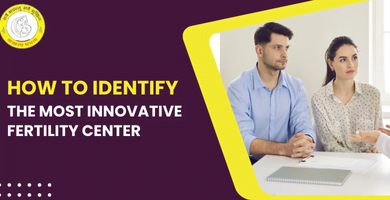Know the Best Sleeping Position after IVF Treatment

If you’re undergoing IVF treatment, you know that every little factor can affect your chances of success. There are countless variables to consider, from diet and exercise to stress management. But did you know that something as simple as your sleeping position after IVF could make a difference?
Being an IVF specialist, there are some instances when some of my patients have asked about the best sleeping positions, and I have to dig deep to provide the best of my knowledge and experience.
In this article, I will share my insights and knowledge about the best sleeping position after embryo transfer and why they matter. Whether you’re looking to optimize your chances of success or get a good night’s sleep, these tips and tricks can help you achieve your goals.
Best Sleeping Positions After IVF for Comfort and Success
In this Article
There is no one “perfect” sleeping position after IVF to promote successful embryo implantation. But some tips may help promote comfort and relaxation during the post-embryo transfer period. Here are some essential tips for the best sleeping positions after IVF treatment.
1. Sleep on Your Left Side
Sleeping on your back or side can help promote optimal blood flow to the uterus and promote relaxation. It’s best to avoid sleeping on your stomach.
2. Use Pillows for Support
Pads to support your hips, knees, and back can help promote comfort and relaxation during sleep.
3. Avoid sleeping on your stomach
Some people find sleeping on their stomachs more comfortable, but sleeping on your stomach is not recommended after IVF treatment.
4. Give your body comfort and support
Proper sleep is not just about position; it also matters how comfortable you are.
Does Sleeping Position Affect IVF Success?
There is limited research on how sleeping positions may affect the success rate of IVF (in vitro fertilization) treatments. Yet, some evidence suggests that certain sleep positions may help in reproductive health and fertility.
One study published in the journal Fertility and Sterility in 2015 found that women who slept on their left side had higher rates of spontaneous pregnancy than women who slept on their right side or back. Sleeping on the left side may improve blood flow to the uterus and sleeping position to help implantation.
This study did not focus on how sleeping position after IVF affects success rates. But sleeping on the left side can benefit women undergoing IVF treatment similarly.
Sleeping in a comfortable and supportive position can help reduce stress and promote well-being. That may further benefit IVF success.
Why Left-Side Sleeping is Recommended After Embryo Transfer
Sleeping on one’s left side may improve blood flow to the uterus and encourage physical. relaxation. The left side of the human anatomy contains the primary artery that supplies blood to the lower body. The uterus is positioned on the left side, which promotes better blood flow to the placenta and developing embryo.
The force acting on the vena cava, which transports blood from the lower regions to the cardiovascular system, is reduced when the left sleeping posture is used. Sleeping on one’s left side enhances blood flow to every part of the body. This placement promotes relaxation and maintains healthy blood circulation, which is beneficial for the development of a healthy embryo.
How Bed Rest Helps with Embryo Implantation and Early Pregnancy
Proper bed rest after embryo transfer helps in embryo implantation and early pregnancy. Here are some reasons:
1. Reduces physical activity
The uterus needs time to repair following embryo transfer before returning to regular activities. Physical exertion damages the uterus, which may hinder the attachment of the egg. This approach necessitates appropriate bed rest.
2. Minimizes stress
Resting and relaxing can reduce stress hormones, hindering implantation.
3. Improves blood flow
Resting and staying off your feet enhances blood flow to the uterus. Blood flow improves oxygen and nutrient delivery to the embryo.
4. Reduces the risk of miscarriage
Bed rest after IVF lets the embryo connect to the uterine lining without stress or activity. It reduces the risk of miscarriage. When the embryo can stick to the uterine lining and get blood, it’s more likely to grow and develop and avoid early pregnancy loss.
7 Tips for Better Sleep After Embryo Transfer
Getting deep and comfortable sleep after embryo transfer is vital for promoting relaxation and optimal conditions for embryo implantation. Here are a few more tips to help how to sleep after embryo transfer promote restful sleep:
1. Optimize Bedroom Environment
A quiet bedroom can help promote relaxation and restful sleep. Try to keep the temperature between 60-67°F (15-19°C). Use blackout curtains or blinds to block out outside light and create a dark environment for sleep. Invest in a dimmer switch or use low-wattage bulbs to create a calming ambiance.
2. Avoid caffeine and alcohol
Caffeine and alcohol can interfere with sleep quality, so it’s best to avoid them before bedtime.
3. Use relaxation techniques
Try deep breathing, meditation, or gentle yoga. These techniques can help relax and reduce stress. Do practice these to promote optimal conditions for embryo implantation.
4. Use comfortable bedding
Using comfortable bedding can help promote restful sleep. Choose soft and breathable bedding. Consider using pillows to support your head, neck, and body.
5. Stick to a Schedule
Go to bed and get up at the same time every day. It can help your body’s internal clock run smoothly and help you get a restful sleep at night.
6. Avoid using electronic devices in bed
Electronic devices such as smartphones and tablets emit blue light. It can interfere with sleep quality. It’s best to avoid using these devices in the hours leading up to bedtime.
7. Stay hydrated
Staying hydrated can help promote optimal conditions for embryo implantation. It also supports healthy embryo development. But it’s best to avoid drinking large amounts of fluids before bedtime to cut the need to get up during the night.
Read the next article: Is IVF Painful
Conclusion
In conclusion, best sleeping position after embryo transfer choosing the right sleeping position after IVF treatment can potentially improve the chances of success. The recommended position is to sleep on your left side, as it helps increase blood flow to the uterus and may improve embryo implantation.
It’s important to note that sleeping position is not the only factor for successful IVF. Factors like age, reproductive health, and lifestyle also influence IVF success.
Remember to follow your healthcare provider’s instructions carefully. Take enough rest during the post-embryo transfer period. Getting restful sleep is critical to supporting a healthy pregnancy after IVF.
Visit IVF Centre in Patna for any specialist support in your journey to parenthood.
FAQs
What to do after embryo transfer
The most important thing to do after an embryo transfer is to relax and take it easy. While complete bed rest isn’t necessary, avoid strenuous activities for a few days. Always follow your doctor’s specific instructions regarding medication, diet, and activity levels.
How to increase blood flow to uterus after embryo transfer
While there’s no guaranteed way to increase blood flow specifically to the uterus, maintaining overall good health is beneficial. This includes eating a balanced diet, getting regular exercise (before the transfer), and staying hydrated. Loose clothing can also help improve circulation.
What is the best position to sleep after embryo transfer
There’s no definitive “best” sleeping position after an embryo transfer. Choose a position that feels comfortable for you. Many women find it helpful to sleep on their side with a pillow supporting their lower back.
What is the best position to sleep in for implantation?
The best way to enhance implantation is to follow your doctor’s advice. They will provide specific recommendations based on your individual situation. Generally, maintaining a healthy lifestyle with a balanced diet, adequate rest, and stress management can support the process.
What to eat after egg retrieval
After egg retrieval, it’s essential to follow your doctor’s instructions regarding medication, diet, and activity. Allow your body time to recover from the procedure.
Can I sleep on my right side after IVF?
Sleeping on your right side is generally fine but not as beneficial as sleeping on the left side.
What is the best sleeping position after IVF?
The best sleeping position after IVF is sleeping on your left side.
Does stress affect IVF success?
High stress may impact hormones, practice mindfulness for relaxation.



